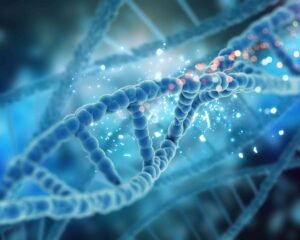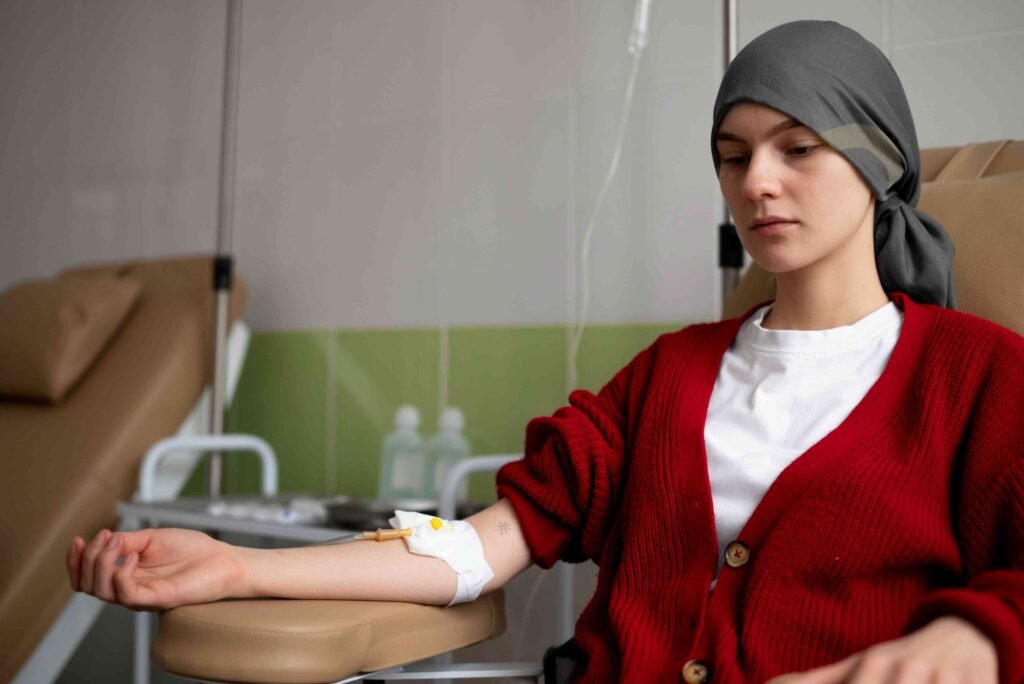The Role of Genetics in Cancer
When we talk about cancer, it’s easy to feel overwhelmed by the complexity of the disease and its many forms. It can affect anyone, anywhere, and is influenced by a host of factors, including lifestyle, environment, and genetics. Yes, genetics! Have you ever wondered why some cancers run in families? Or why two people with similar lifestyles might have different cancer risks? Well, genetics has a significant role to play in cancer, and understanding this link can empower you to make informed choices about your health.
In this blog, we’ll explore the fascinating relationship between genetics and cancer, uncover how genetic mutations lead to cancer, discuss genetic testing, and offer tips on what you can do if you’re at a higher risk. Let’s dive into the world of genes and find out how they influence cancer risk.
What Exactly Is Cancer?
Cancer is a group of diseases that involves the abnormal growth of cells with the potential to invade or spread to other parts of the body. Normally, our cells grow, divide, and die in a controlled manner. However, cancer cells don’t follow these rules. Instead, they multiply uncontrollably and can form tumors, which can disrupt the body’s normal functions.

Cancer can develop in almost any part of the body and can be caused by several factors. Among these, genetics is one of the most significant, yet often misunderstood. So how exactly do genes affect cancer risk?
Understanding Genetics and Its Role in Cancer
Genes are like the instruction manual for our cells. They determine everything from your eye color to your risk of developing certain diseases. We inherit our genes from our parents, which is why certain traits, including health risks, can be passed down through families. In the context of cancer, there are specific genes that can increase the likelihood of developing the disease.
The Basics of Genes and Mutations
In simple terms, a gene is a segment of DNA that instructs our cells on how to function. Sometimes, these instructions can go awry due to changes or “mutations” in the DNA. When these mutations happen in genes that control cell growth and repair, they can increase the risk of cancer.

There are two main types of genes related to cancer risk:
- Oncogenes: These genes, when mutated, can turn a normal cell into a cancer cell by promoting uncontrolled cell growth.
- Tumor Suppressor Genes: These are the “brakes” of cell growth. When they are mutated, the brakes are disabled, allowing cells to grow unchecked, which can lead to cancer.
Inherited vs. Acquired Genetic Mutations
There are two types of genetic mutations related to cancer: inherited and acquired.
- Inherited Mutations: These are the mutations you’re born with, passed down from your parents. They are present in every cell of your body and can significantly increase your risk for certain cancers. Some well-known inherited mutations include BRCA1 and BRCA2, which are linked to a higher risk of breast and ovarian cancers.
- Acquired Mutations: These mutations occur over time due to environmental factors, lifestyle choices, or simply as a result of aging. Unlike inherited mutations, these are not passed down to the next generation, as they are not present in the reproductive cells.

While most cancers are caused by acquired mutations, around 5-10% of all cancers are due to inherited genetic mutations. This means that for a small percentage of people, genetics plays a direct role in cancer development.
How Do Genetic Mutations Lead to Cancer?
So, how exactly do these mutations result in cancer? The answer lies in how these mutations affect the genes that regulate cell growth and repair.
When a mutation disrupts the function of an oncogene or a tumor suppressor gene, the cell cycle becomes unregulated. This unregulated growth is the hallmark of cancer. Let’s break down the process:
- Cell Division and Repair: Normally, cells divide in a controlled way. Tumor suppressor genes ensure that cells don’t divide uncontrollably. But if these genes are mutated, they lose their ability to regulate cell division, leading to abnormal growth.
- Error Accumulation: Each time a cell divides, there’s a chance for errors to occur. Usually, cells can fix these errors. But if mutations occur in the genes responsible for repairing DNA, these errors go unchecked, and mutations accumulate, increasing the risk of cancer.
- Immortal Cells: In normal cells, there’s a built-in process called apoptosis, or programmed cell death, which removes damaged or unnecessary cells. Cancer cells, however, evade this process due to mutations, allowing them to survive and multiply indefinitely.
These genetic changes result in cells that ignore the normal signals for growth and death, allowing them to form tumors and potentially spread throughout the body.
Genetic Testing for Cancer:
You might be wondering, “Can I find out if I have these genetic mutations?” The answer is yes! Genetic testing can reveal whether you carry inherited mutations that increase your cancer risk.
Types of Genetic Tests
1. Single Gene Tests:
These tests look for specific mutations, like BRCA1 and BRCA2, which are known to increase the risk for certain cancers.
2. Panel Testing:
These tests examine multiple genes at once, providing a broader assessment of cancer risk.
3. Whole Genome Sequencing:
This test analyzes your entire DNA to identify mutations, though it’s more expensive and less commonly used for routine cancer screening.
Who Should Consider Genetic Testing?
best
Genetic testing isn’t necessary for everyone. However, it’s recommended if you have:
– A strong family history of certain cancers (e.g., breast, ovarian, or colon cancer).
– A relative with a known genetic mutation linked to cancer.
– Early-onset cancer in your family (diagnosed before age 50).
– Multiple relatives with the same type of cancer.

Benefits and Limitations of Genetic Testing
Benefits:
– Provides information about your cancer risk, helping you make informed health decisions.
– Can guide early screening or preventive measures, like increased surveillance or lifestyle changes.
– Helps family members understand their risk and take preventive actions.
Limitations:
– A positive result doesn’t guarantee that you’ll develop cancer, only that you have a higher risk.
– A negative result doesn’t mean you’re risk-free, as it only tests for known mutations.
– The emotional impact of results can be challenging, especially if you test positive for a mutation.
If you’re considering genetic testing, it’s essential to speak with a genetic counselor. They can help you understand the risks, benefits, and implications of the results, ensuring you make an informed choice.
Cancer Prevention and Early Detection
While genetic factors may not be within your control, there are still steps you can take to reduce your overall cancer risk and promote early detection. Here are some strategies:
Lifestyle Choices Matter
While genetic mutations can increase your risk, lifestyle factors play a significant role in cancer development. By adopting a healthy lifestyle, you can reduce your risk even if you carry genetic mutations.
- Diet: Focus on a balanced diet rich in fruits, vegetables, and whole grains. Limit red meat and avoid processed foods, which have been linked to increased cancer risk.

- Exercise: Regular physical activity can lower the risk of various cancers, including breast and colon cancer. Aim for at least 150 minutes of moderate exercise per week.
- Avoid Tobacco and Limit Alcohol: Smoking is a significant risk factor for many cancers, and alcohol has been linked to several types, including breast and liver cancer. Reducing or eliminating these can lower your risk.
- Sun Protection: Skin cancer is one of the most preventable types. Use sunscreen, wear protective clothing, and avoid excessive sun exposure, especially during peak hours.
Regular Screenings and Check-Ups
If you’re at a higher genetic risk, regular screenings are crucial. Early detection can improve treatment outcomes, so speak with your healthcare provider about the recommended screening schedule for your specific risk factors.

Preventive Surgeries
In some cases, those with a high genetic risk for cancer may consider preventive surgeries, such as mastectomies for breast cancer or oophorectomies for ovarian cancer. While it’s a significant decision, these surgeries can drastically reduce cancer risk. This option should be thoroughly discussed with your medical team.
Conclusion: Empowering Yourself Through Knowledge
While the role of genetics in cancer can be complex, understanding your risk factors is a powerful step toward prevention and early detection. Whether you have a family history of cancer or simply want to be proactive about your health, there are steps you can take to reduce your risk and protect your well-being.


